WELCOME TO THE ARCHIVE (1994-2014) OF THE MAQUILA SOLIDARITY NETWORK. For current information on our ongoing work on the living wage, women's labour rights, freedom of association, corporate accountability and Bangladesh fire and safety, please visit our new website, launched in October, 2015: www.maquilasolidarity.org
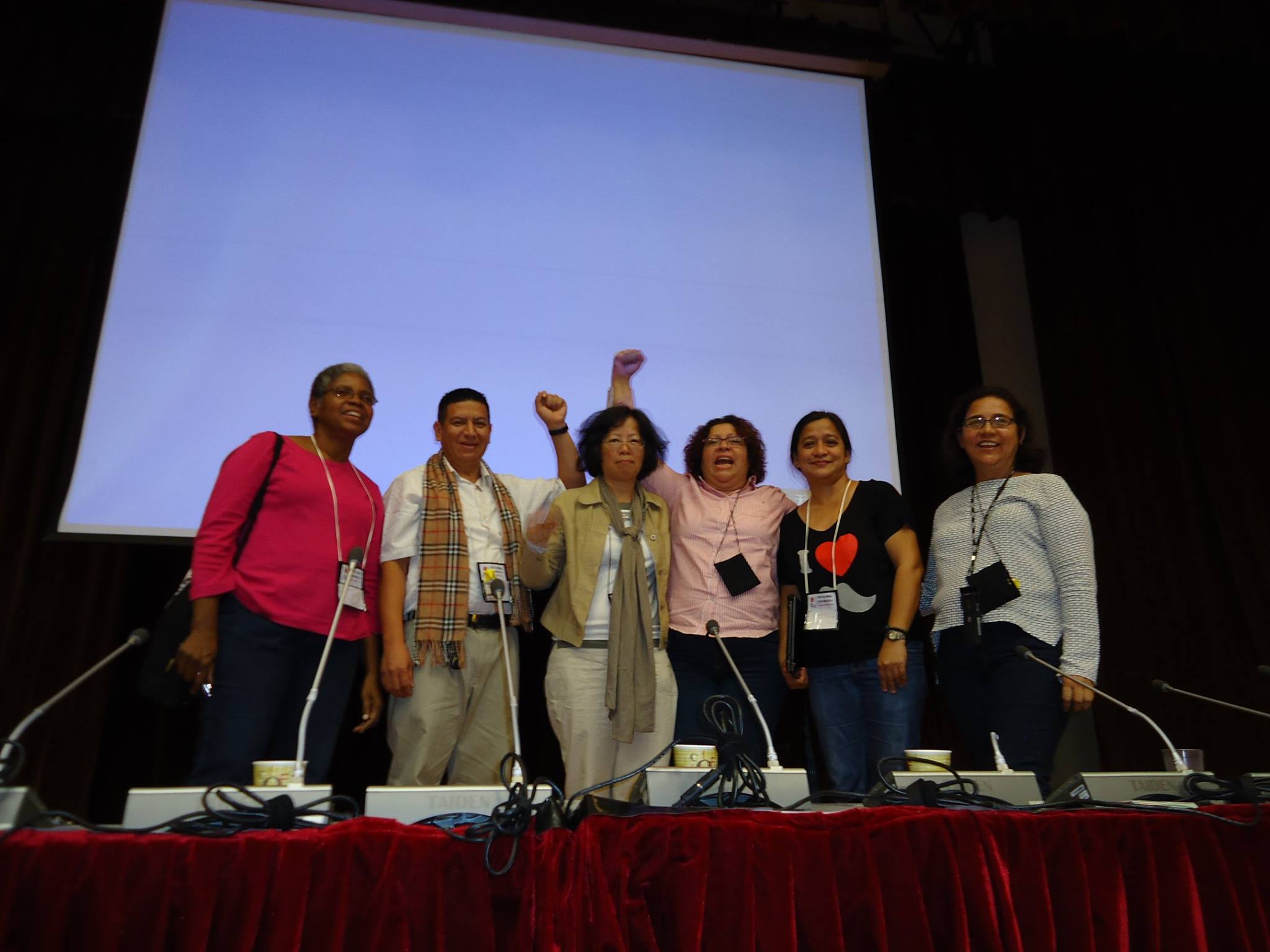 On November 18-21, members of the MSN team travelled to Hong Kong to participate in the Clean Clothes Campaign's 2014 Global Forum on Strategies and Structure for the international labour rights movement.
On November 18-21, members of the MSN team travelled to Hong Kong to participate in the Clean Clothes Campaign's 2014 Global Forum on Strategies and Structure for the international labour rights movement.
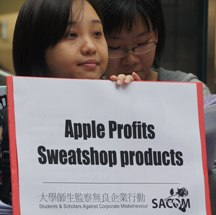 As Apple held its Annual General Meeting in Cupertino, California on February 27, activists from the labour rights group Students and Scholars Against Corporate Misbehaviour (SACOM) rallied in front of Apple stores in Hong Kong to protest the continuing abuse of workers that make the company’s popular electronics products.
As Apple held its Annual General Meeting in Cupertino, California on February 27, activists from the labour rights group Students and Scholars Against Corporate Misbehaviour (SACOM) rallied in front of Apple stores in Hong Kong to protest the continuing abuse of workers that make the company’s popular electronics products.
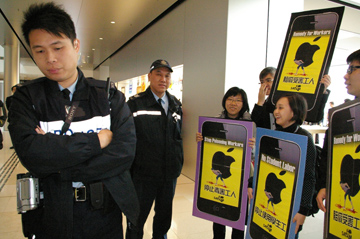 On March 29, the Fair Labor Association (FLA) released a much-anticipated report on its investigation into the labour practices at three Foxconn factories in China employing close to 180,000 workers who manufacture electronic devices for Apple including iPads and iPhones.
On March 29, the Fair Labor Association (FLA) released a much-anticipated report on its investigation into the labour practices at three Foxconn factories in China employing close to 180,000 workers who manufacture electronic devices for Apple including iPads and iPhones.
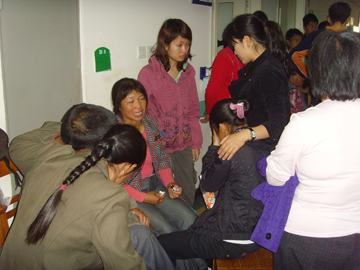
Family members react - May 2011
Students & Scholars Against Corporate Misbehaviour (SACOM) has released a statement blaming a May 20 explosion at Foxconn's Ipad plant on the company, which it says is putting productivity over worker safety. The blast, which killed two workers and injured 16, could have been prevented, says SACOM. The group points to an early May report in which it raised issues with dangerous aluminum dust in the factory's polishing department where the blast occurred.
Last week we alerted you to the tragic suicides at a Chinese factory making products for many of the world's best-known electronics brands - including Apple's new iPads. This week we're outraged by yet another death at the Foxconn factory, this time apparently due to exhaustion after Yan Li, a 27-year old Foxconn engineer, worked continuously for 34 hours.
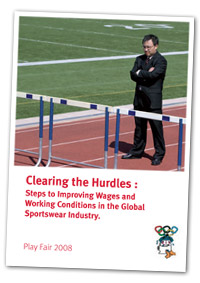
As the clock ticks down to the Beijing Olympics, international sportswear companies are amassing huge profits and arranging multi-million dollar sponsorship deals with the Games, Olympic athletes and national teams.
Meanwhile, workers producing their goods are still living in poverty. In a new report, “Clearing the Hurdles: Steps to improving working conditions in the global sportswear industry”, Play Fair 2008 calls upon brands, manufacturers, and multi-stakeholder initiatives to overcome four major hurdles to make real, measurable progress on wages and working conditions in the global sportswear industry.
On July 10, 2008, following the Ethical Trading Forum in Vancouver at which transparency and Olympic licensing was debated with companies, trade unions, NGOs and Olympic organizers, Nike publicly released the full list of factories that produced its products for the Beijing 2008 Olympics.
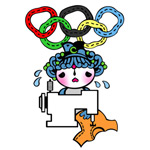
On July 31, the Beijing Organizing Committee of the 2008 Olympic Games (BOCOG) announced the results of its investigation into Play Fair's findings of child labour and gross violations of adult workers' rights in certain factories producing licensed goods for the 2008 Olympics. While BOCOG confirmed some of Play Fair's findings, it neglected others and failed to commit to acting positively to improve workers' conditions, choosing instead to cut and run from factories implicated in Play Fair's original report.
This Marketplace report focuses on the exploitive conditions under which toys are made, with a particular focus on China. It presents a number of interviews with people who have done research into the labour that goes into making toys as well as with the former president of Irwing Toys. The video briefly looks at how companies like Mattel and Disney fit into the picture and how the rise of sweatshops is related to globalization trends. This report on toys is aimed at appealing to parents shopping for gifts during the holiday season
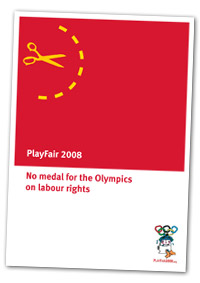
A new report released today by the Play Fair 2008 Campaign exposes gross violations of workers’ rights by several Chinese factories supplying goods under license for the Beijing Olympics, including employment of children, adults being paid half the legal minimum wage, and employees forced to work 12-hour shifts, seven days a week, in unsafe and unhealthy conditions.